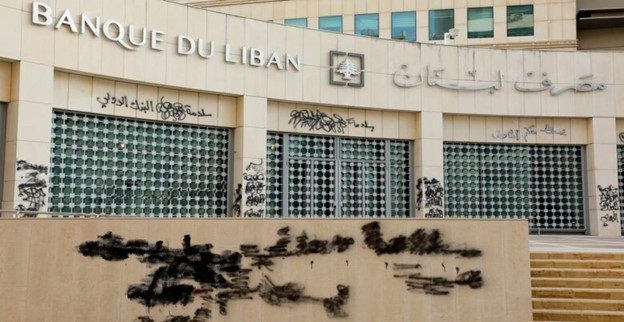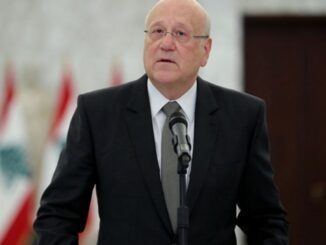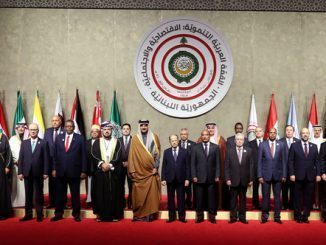
Lebanon as a State, and its Central Bank, has gone bankrupt, according to Lebanese Deputy Prime Minister, Saadeh Al-Shami.
Lebanon as a State, and its Central Bank, has gone bankrupt, according to Deputy Prime Minister, Saadeh Al-Shami.
“The State has gone bankrupt as did the Banque du Liban, and the loss has occurred, and we will seek to reduce losses for the people,” Al-Shami told the local Al-Jadeed channel.
He said the losses will be distributed among the State, the Banque du Liban, banks and depositors.
“There is no conflict of views about the distribution of losses,” he added.
Since late 2019, Lebanon has been grappling with a severe economic crisis, including a massive currency depreciation as well as fuel and medical shortages.
The Lebanese currency has lost 90 per cent of its value, eroding people’s ability to access basic goods, including food, water, healthcare, and education, while widespread power outages are common due to fuel shortages.
Al-Shami said the country’s situation “cannot be ignored” hence bank withdrawals cannot be open to all people.
“I wish we were in a normal situation,” he added.
Cash withdrawals in foreign currency in Lebanon have been strictly limited since 2019, due to the ongoing economic crisis.
Talk of bankruptcy untrue!
However, Lebanon Central Bank Governor Riad Salameh said on Monday that the bank is still performing its mandated role and that talk about bankruptcy is untrue.
The statement comes hours after the country’s Deputy Prime Minister Saadeh Al Shami said the country had gone bankrupt.
Governor of the Bank of Lebanon, Riad Salameh, has denied “what is being circulated about the bankruptcy of the Central Bank, and considered that this is not true.”
In a statement, Salameh said that despite the losses that afflicted the financial sector in Lebanon, which are under treatment in the recovery plan that is currently being prepared by the Lebanese government in cooperation with the International Monetary Fund, the bank of Lebanon is still exercising its role entrusted to it under Article 70 of the Monetary and Credit Law.
Lebanese media had quoted the Lebanese Deputy Prime Minister, Saadeh Al-Shami, as saying on a TV program that the Lebanese state and the Central Bank of Lebanon are bankrupt.
Lebanese crisis among the worst
On Monday, the Regional Director of the Mashreq Department in the World Bank, Saroj Kumar Jha, described the crisis that Lebanon is currently witnessing as the worst in its history and that it is among the three worst crises in the world.
Kumar’s words came during his participation in the Lebanon Reform, Recovery and Reconstruction Framework meeting, chaired by Prime Minister, Najib Mikati, and in joint coordination between the UN, EU and the World Bank in Beirut.
In a speech cited by the Lebanese government, Kumar called for “the need to achieve stability at the macroeconomic level.”
He said, “Lebanon has witnessed many crises, but this crisis is the worst. Indeed, Lebanon’s crisis is among the three worst crises in the world.”
For two years, Lebanon has been experiencing the worst economic crisis since the end of the civil war (1975-1990) that led to a financial collapse, as well as great material losses incurred by the banking system, estimated by the government at about $69 billion.
He stated that the economic situation is dire and “the size of the economic deflation has reached 60 per cent as of 2021.”
However, he expressed his optimism towards “the national reform program led by Mikati, but if this program does not do well, it will lead to a greater deflation of the economy and will lead to a crisis in economic and social conditions.”
He believed that “there is a need for a reform plan that includes a financial program, debt repayment, restructuring the financial and banking sector, and developing social protection systems.”
On his part, Mikati said, “The government is working through the relevant authorities in the public sector to unify a single and comprehensive vision for development, recovery and reform among those concerned, and we are close to completing the unification of this vision to implement the necessary reforms.”



